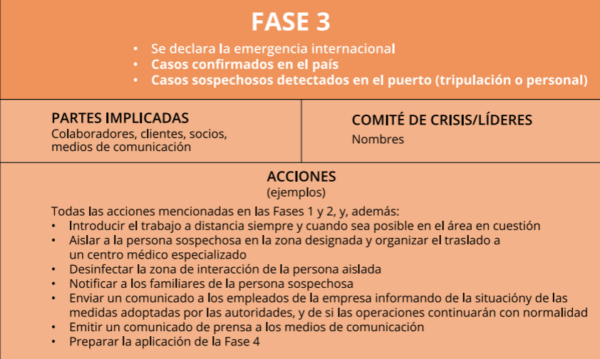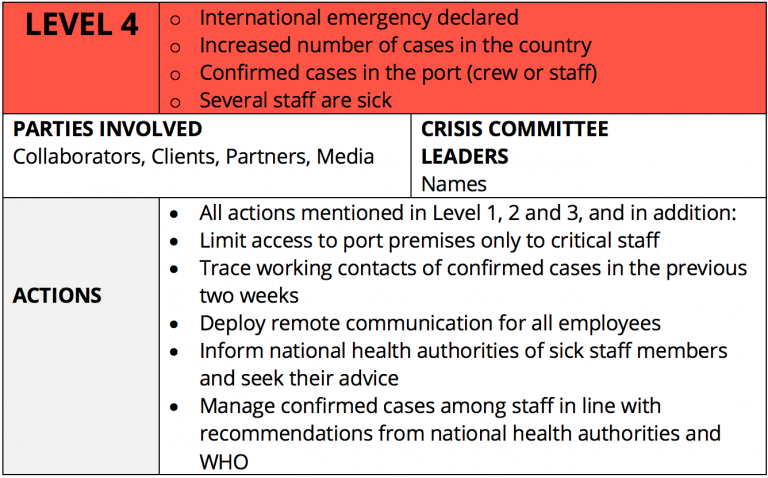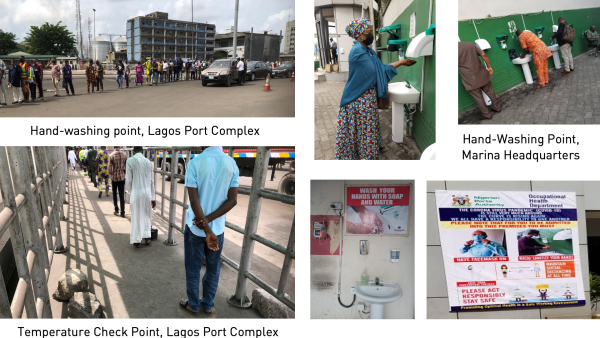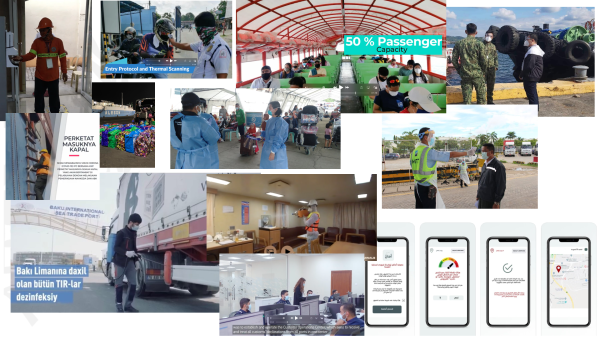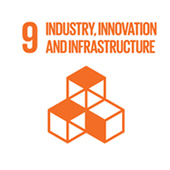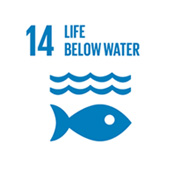
¿quieres jugar?
Simulation exercise: ¿Se el capitán en estos tiempos inciertos? (15 minutes)

Simulation exercise: ¿Estás preparado para una pandemia?!(15 minutes)

Objetivo
El objetivo del curso de Puertos Resilientes ante las Pandemias de la UNCTAD/TRAINFORTRADE es apoyar y preparar la aplicación de medidas para paliar las contingencias relacionadas con una pandemia en una comunidad portuaria.
Más concretamente, al finalizar el curso, se podrá:
- Describir y preparar protocolos de crisis
- Preparar estrategias de comunicación y aplicar herramientas de comunicación digital eficaces
- Apreciar los impactos potenciales de las pandemias en el bienestar del personal y abordar problemas relacionados con la angustia y estrés
- Identificar soluciones tecnológicas apropiadas para modalidades de trabajo alternativos
- Evaluar los escenarios de interrupción de la carga y los pasajeros
- Identificar los riesgos legales y financieros
- Definir las medidas de mitigación adecuadas
Inscripción
(acceso: BPR2024ES)
Curso detallada
Key Characteristics
| Fechas | 19 febrero al 12 de marzo de 2024 |
| Actividades | 2 semanas de curso a distancia facilitado por expertos portuarios 2 ejercicios de simulación (30 a 45 minutos – semana 3) 1 webinar (90 minutos – semana 4) |
| Cantidad de horas | 20 horas |
| Idioma | Español, Inglés y francés |
| Plataforma del curso | https://learn.unctad.org/ |
| Inscripción | Las personas interesadas en el curso deben registrarse en el siguiente enlace https://tft-reg.unctad.org/es eligiendo el idioma de preferencia e ingresando el código correspondiente: idioma español – código: BPR2024ES idioma inglés – código: BPR2024EN idioma francés – código: BPR2024FR La fecha límite para inscribirse es el 16 de febrero de 2024. |
| Criterios de aprobación | Promedio de al menos 50% de los 2 tests (que cubren las secciones 1-4) |
| Certificado | Si – Certificado electrónico conforme criterio de aprobación |
| Price | Sin costo para los/las participantes[1] [1] Este curso cuenta con el apoyo financiero de la Cuenta de Desarrollo de las Naciones Unidas y de Irish Aid. |
[1] El curso fue desarrollado por el Programa TRAINFORTRADE de la UNCTAD en cooperación con la Fundación Valenciaport y la Autoridad Portuaria de Valencia y con el financiamiento de Cuenta de Desarrollo de las Naciones Unidas y de Irish Aid.
Target Population
This special course is addressed to all actors involved in international trade, especially those involved with port operations. The course primary and secondary target population are representatives from the following organisations:
Primary target:
Secondary target:
objetivo
El objetivo del curso de Puertos Resilientes ante las Pandemias de la UNCTAD/TRAINFORTRADE es apoyar y preparar la aplicación de medidas para paliar las contingencias relacionadas con una pandemia en una comunidad portuaria:
ESTRUCTURA DEL CURSO
Es un curso en línea facilitado por expertos/as portuarios, con una estructura de tareas que se deben cumplimentar durante la semana a su propio ritmo. Las actividades incluyen lecturas, videos, foros y cuestionarios de opinión. Al finalizar las dos semanas que llevarán a cabo dos ejercicios de simulación y un Webinar (véase el programa más abajo para más detalles).
Online course
El curso online moderado está estructurado en cuatro secciones, dando una visión precisa y ordenada de los diferentes aspectos a tener en cuenta por parte de un puerto u organización portuaria en una situación de pandemia. Considera tanto una visión general como acciones específicas, la parte psicológica y emocional relacionada con los trabajadores, las herramientas tecnológicas, y también considera acciones relacionadas con el aseguramiento de la actividad principal de un puerto en la gestión del flujo de mercancías:
Webinar (12 marzo)
Para finalizar el curso, se invitará al grupo de participantes a un webinar de 90 minutos que se llevará a cabo en Zoom el 12 de marzo de 2024 de 15:00 a 16:30 CET.
Ejercicios de simulación/Gamification
Durante la tercera semana, se realizarán ejercicios de simulación para consolidar los conocimientos adquiridos durante el curso. El objetivo principal de estos ejercicios es que poner a prueba las habilidades de toma de decisiones en una situación de juego de roles como tomador de decisiones en un contexto pandémico. El tiempo estimado para completar los ejercicios es de unos 30-45 minutos. Los resultados de estos ejercicios son sólo indicativos y no contarán en la nota final del curso.
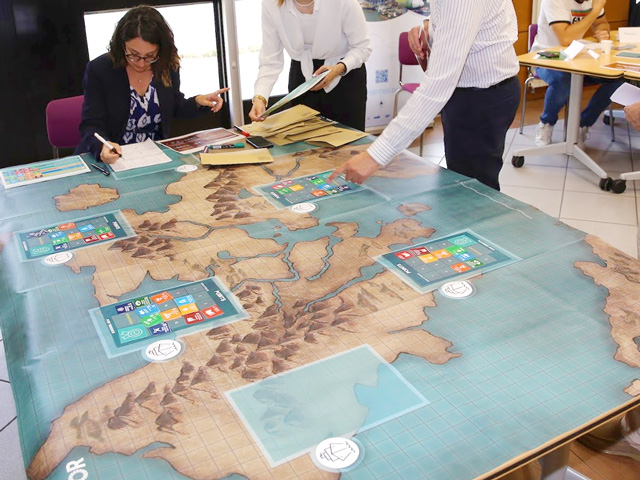
Agenda Detallada
Pictures shared by participants during the 2021 course
There are 854 participants registered (36% women) from 99 countries. Over 1200 posts in the fora. 261 policy recommendations shared, 1000+ votes
«The course was very useful and interesting. I learnt a lot about how to develop mitigation plan related to pandemic disruption in broader view.»
«The materials based on examples in several ports are fit to be implemented in most ports. We could share our views and have other participants opinions and suggestions easily.»
«The learning method is interesting also, especially the simulation exercises.»
«This course helped me to appreciate the idea of establishing a Crisis Response Team in our office.»
From the Golden Book
Webinar video 27 July 2021

Webinar video 27 July 2021
Building Port Resilience Presentation

Building Port Resilience
Presentation
e-DACUM : Design of the Course Curriculum
The purpose of the phase from the TrainForTrade methodology called Design a Curriculum (DACUM), is to brainstorm on the subject of the new course being designed, i.e. “Port resilience against pandemics”. The goals are to define the objectives and content of job aids to be developed, write training objectives, define target population, and describe what the trainees would be able to do as a result of the training. Furthermore, the DACUM proposes how to design tests for each objective and how to finally sequence the objectives and group them into modules to form a curriculum. The DACUM process for this special course was held virtually for the first time and during three 75-minute sessions via Microsoft Teams and with the use of Padlet platforms.

Building Port Resilience Against Pandemics
Background of the Project
In the current times of the global pandemic, various United Nations entities combined their efforts to propose a joint project that will implement standards, guidelines, metrics, tools and methodologies to immediately help governments, including Customs and other border agencies, port authorities, and the business community worldwide, to keep transport networks and borders operational to facilitate the flow of goods and services, while containing the further spread of the COVID-19 virus. One of its components focuses on port resilience against invisible threats and on keeping ports safe and operational during pandemics.
TrainForTrade’s project includes the exchange of best practices and new safety standards and the design and delivery of a training package to build essential skills for port community managers to help protect people and secure vital trade in ports (TFT Special Course “Building Port Resilience Against Pandemics”).
SDGs related to this project:
Support:
El curso fue desarrollado por el Programa TRAINFORTRADE de la UNCTAD en cooperación con la Fundación Valenciaport y la Autoridad Portuaria de Valencia y con el financiamiento de Cuenta de Desarrollo de las Naciones Unidas y de Irish Aid.
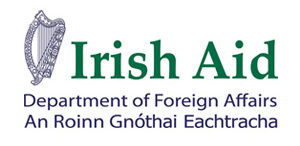



INTRODUCTION
In the current unprecedented times of a global threat posed by a coronavirus pandemic that has triggered dire consequences for whole societies and nations, the maritime industry is playing an essential role in the response. Around 80% of global trade is transported by commercial shipping. This includes currently most-needed items such as vital medical supplies and equipment, as well as food, energy, raw materials and manufactured goods and components. These are essential for addressing people’s basic needs and for preserving many jobs in manufacturing, maintaining international trade and, in the end, sustaining the global economy.
In view of this, it is important to keep supply chains open and to allow maritime trade to continue. This requires that the world’s ports remain open for ship calls and that ship crews’ changeover is allowed. Further, in these challenging times, some additional measures should be undertaken to protect the staff working in port communities and to ensure continuity of ports’ operations.
BEST PRACTICES
Based on several documents received from ports that are part of the UNCTAD TrainForTrade Network, the following measures have been implemented/observed and could serve as generic guidelines:
(1) Under the International Labour Organization’s (ILO) Maritime Labour Convention of 2006, flag States must ensure that all seafarers on ships flying their flag are covered by adequate measures for the protection of their health and that they have access to prompt and adequate medical care whilst working onboard. The Convention also requires port States to ensure that seafarers on board ships in their territory who are in need of immediate medical care are given access to medical facilities onshore.
RECOMMENDATIONS
It is crucial to keep the country’s borders open for all forms of freight transport, in particular ports considered to be essential national assets. Governments need to ensure that health measures are implemented in ways that minimize unnecessary interference with international traffic and trade; in particular, by respecting the requirements of “free pratique” for ships under the International Health Regulations (IHR). The principles of avoiding unnecessary restrictions or delay in port entry for ships, persons and property on board are also embodied in articles I and V and section 6 of the annex of the Convention of the Facilitation of Maritime Traffic (FAL Convention). This is underscored by the International Labor Organisation (ILO) and the International Maritime Organisation (IMO).
The way forward
As ports moved forward to win the battle against this pandemic, several milestones needed to be achieved:
- Boost Internet capabilities and accessibility inside and outside port areas for port workers and users alike. Connectivity as mentioned by the World Bank Group is a “public good” after all;
- Increase connectivity and data interoperability in Global Supply Chains by implementing Port Community Systems and taking advantage of Digital Ledger Technology the likes of Blockchain as promoted by the World Economic Forum (WEF);
- Develop shorter and more diversified supply chains supported by advanced automation and labor-protective relocations in line with climate change objectives;
- Reinforce port regional cooperation to build more resilient trade nodes to brace for future COVID-19 pandemic-like shocks;
- Design new policies for resilient and inclusive ports to reach out to the most vulnerable people who are often dependent on the port communities’ economic and social fabric; and
- Engage in innovative training approaches and well-being at all-staff levels leveraging on the technology.
Lastly, thanks to the support of the United Nations Development Account (https://www.un.org/development/desa/da/da-response-to-covid-19/) and following requests from port members, UNCTAD engaged in the development of a TRAINFORTRADE training and capacity building package called “Building Port Resilience Against Pandemics” (BPR) that will be made available to port communities around the world.
The structure of this BPR course has been defined during eBrainstorming sessions in May and June 2020 with port experts from the Dominican Republic, Ghana, Nigeria, Malaysia, Indonesia, Ireland, Spain, Brazil, Greece and the IAPH Secretariat.
Crisis Protocol
The following section presents an example of a crisis protocol that can be used as a guide on actions that should be implemented in relation to strictly defined crisis levels.


